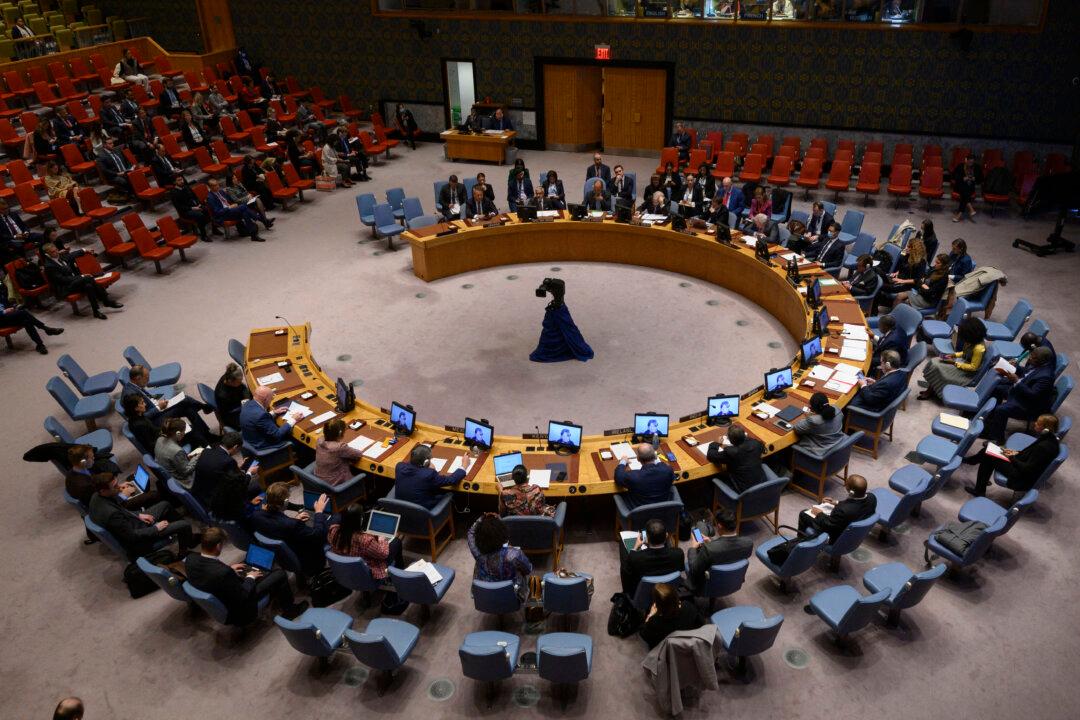Calls by Moscow for a formal inquiry into claims that the United States is running a covert biological weapons program in Ukraine were thwarted at the U.N. Security Council after the United States, the UK, and France all voted against the proposal.
In the vote, which took place on Nov. 2, only Russia and China voted in favor of the proposal, while the remaining 10 nonpermanent council members abstained from casting ballots.





